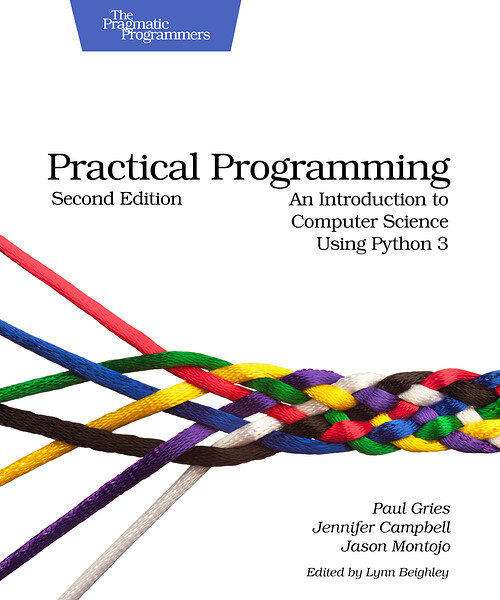Paul Gries, Jennifer Campbell, Jason Montojo @jmontojo
edited by Lynn Beighley
You don’t need any programming experience to get started. First, you’ll get a detailed introduction to Python and to programming. You’ll find out exactly what happens when your programs are executed. Through real-world examples, you’ll learn how to work with numbers, text, big data sets, and files. Then you’ll see how to create and use your own data types.
The incremental examples show you the steps and missteps that happen while developing programs, so you know what to expect when you tackle a problem on your own. Inspired by “How to Design Programs” (HtDP), you’ll learn a six-step recipe for designing functions, which helps you as you start to learn the concepts—and becomes an integral part of writing programs by the end.
As you learn to use the fundamental programming tools in the first half of the book, you’ll see how to document and organize your code so that you and other programmers can more easily read and understand it. Beyond the basics, you’ll learn how to ensure that your programs are reliable, and how to work with databases, download data from the web automatically, and build user interfaces. Most importantly, you’ll learn how to think like a professional programmer.
“I wish I could go back in time and give this book to my 10-year-old self when I first learned programming! It’s so much more engaging, practical, and accessible than the dry introductory programming books that I tried (and often failed) to comprehend as a kid. I love the authors’ hands-on approach of mixing explanations with code snippets that students can type into the Python prompt.”
– Philip Guo, Creator of Online Python Tutor and Assistant Professor, Department of Computer Science, University of Rochester
Don’t forget you can get 35% off with your Devtalk discount! Just use the coupon code “devtalk.com" at checkout ![]()

